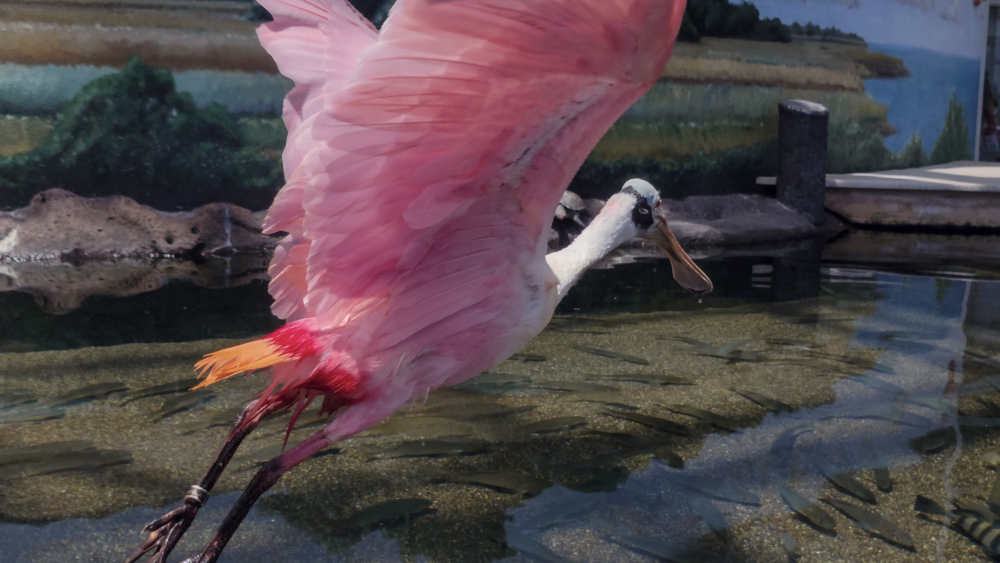Picture this: During your visit to the Aquarium, you’re taking a stroll through the Saltmarsh Aviary when all of a sudden, there’s a flash of pink. Next thing you know, two small, flamingo-like birds appear. From the ground up, they’re quite a colorful sight: bright pink feet and slender legs, hues of pink plumage adorning their bodies and a flattened beak forming the shape of a spoon.
Who in the world are these flamboyant, feathered friends? Meet the reigning roseate spoonbills of the Saltmarsh Aviary, sisters Coral and Pearl!
How do they keep up their colorful exterior?
Their vibrant, pink plumage is actually caused by the food they consume! In the wild, spoonbills forage mainly in marshlands for small crustaceans and the occasional fish, insects and plant parts. At the Aquarium, Coral and Pearl enjoy fine dining in the form of specialized pellets topped with smelt, capelin and the occasional cricket or two. As the chefs say, presentation is key! These pink pellets (which cover all of their required dietary needs) are submerged in water and served to Coral and Pearl in a “pasta plate” that allows them to mimic natural foraging behaviors. Throughout the week, they are also treated to a snack of krill, which contribute to their coloring as well.
Take some festive inspiration from these feathered friends and dress in your most colorful, festive attire at Sea Life by Starlight on Saturday, December 10! Gather with the music makers and the dreamers of the dreams at the Aquarium from 8–11 p.m. for a night full of light bites, entertainment, a silent auction and more. General admission is $95 and member tickets are $85 with code MEM2022.
You know how the saying goes… birds of a feather flock together, so be sure to scoop up your tickets soon!
A special thank you to our expert, Jess Anderson, biologist, for her time and knowledge in creating this blog.
Published December 1, 2022


